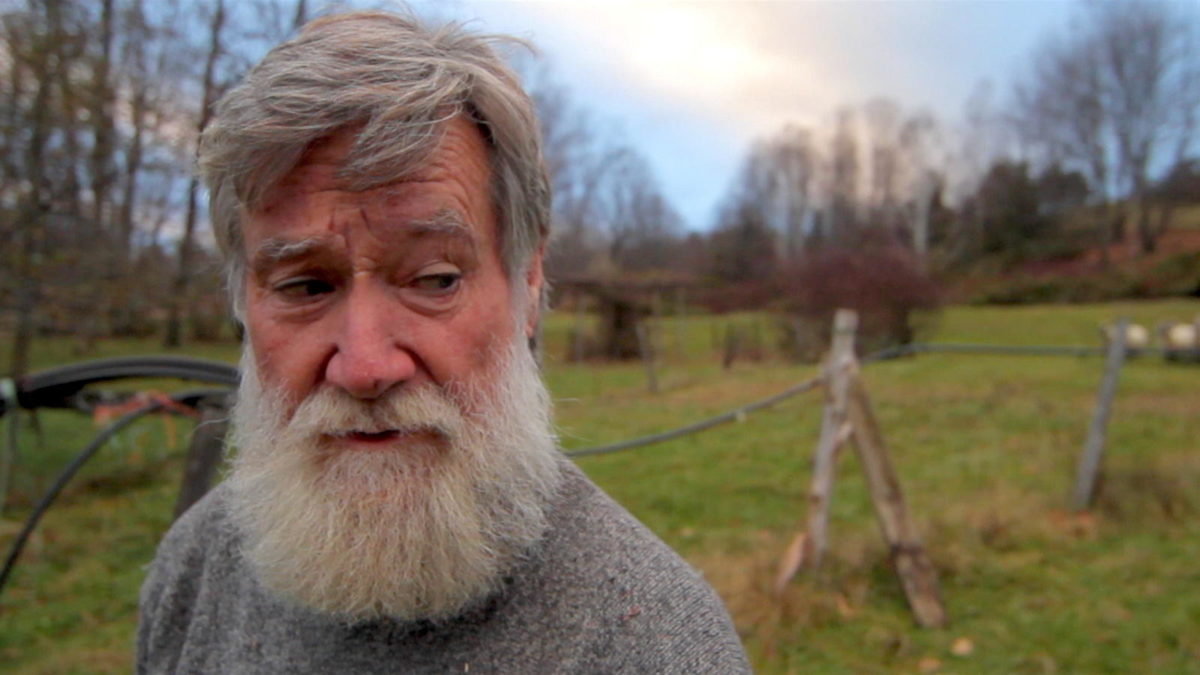
Peter Dunning is an angry cantankerous old man. 68 years old, abandoned by his wife and adult children ‘they will not pick up the phone if I call,’ he lives alone working his 187 acre farm in rural Vermont. He is full of a mixture of bitterness and regret, that is occasionally peppered with his wry sense of humor which is the saving grace of this very insightful but somewhat depressing documentary from Tony Stone.
From one of the first scenes Stone tests our stomachs with a explicit scene of Dunning killing and gutting a sheep, and he doesn’t hold back when the farmer insists on discussing some of the more graphic details of his work that are tough to listen too. It seems in a way that he is being purposely provocative to shock like when he insists of relating exactly how and where on the farm that his children were conceived.
Stone patiently films Dunning as he goes about his daily tasks whilst at the same time he is rambling on about how life has become such a disappointment that he never imagined it would be, when he bought the farm 35 years ago. He choses not to go into too much detail of why everyone abandoned him to struggle on alone, but it soon becomes pretty obvious that his alcoholism and depression must have played a major part.
His salvation in a way in his art and his poetry even though a serious accident in a logging factory in his youth robbed him of his ambition to become a sculptor. He thinks of himself as freethinking hippie but at the same time in yet another of his paradoxes what matters most of all to him is being respected by the local farming community. In one of his many rants about his lot, Dunning stresses that he cares much more about the farm than he does about his own life which he keeps talking about ending.
As annoying as he is, there is something intriguing about Dunning, that compels one to sit through his sad story to the end, even if it means averting one eye’s through the bloody bits.

